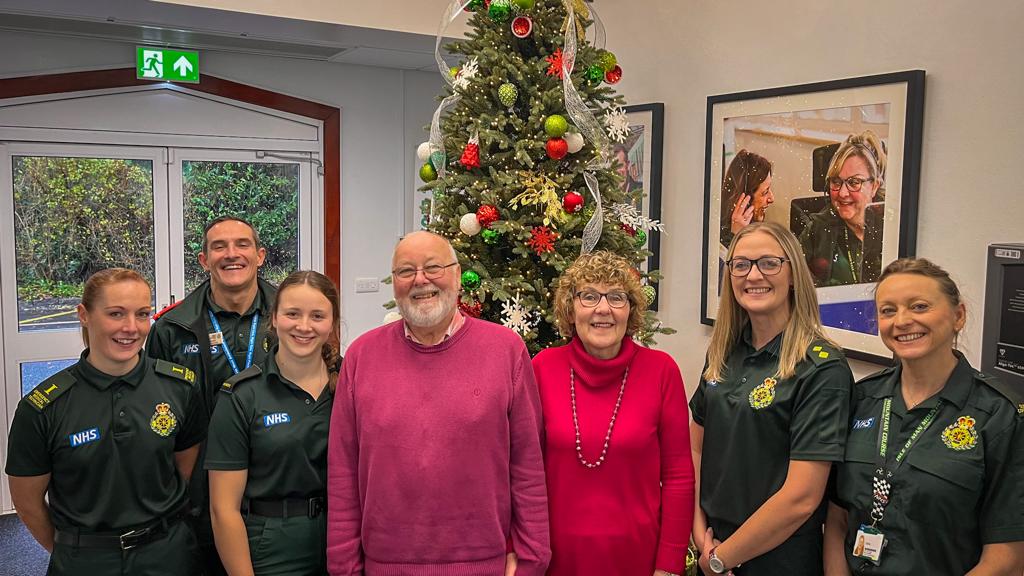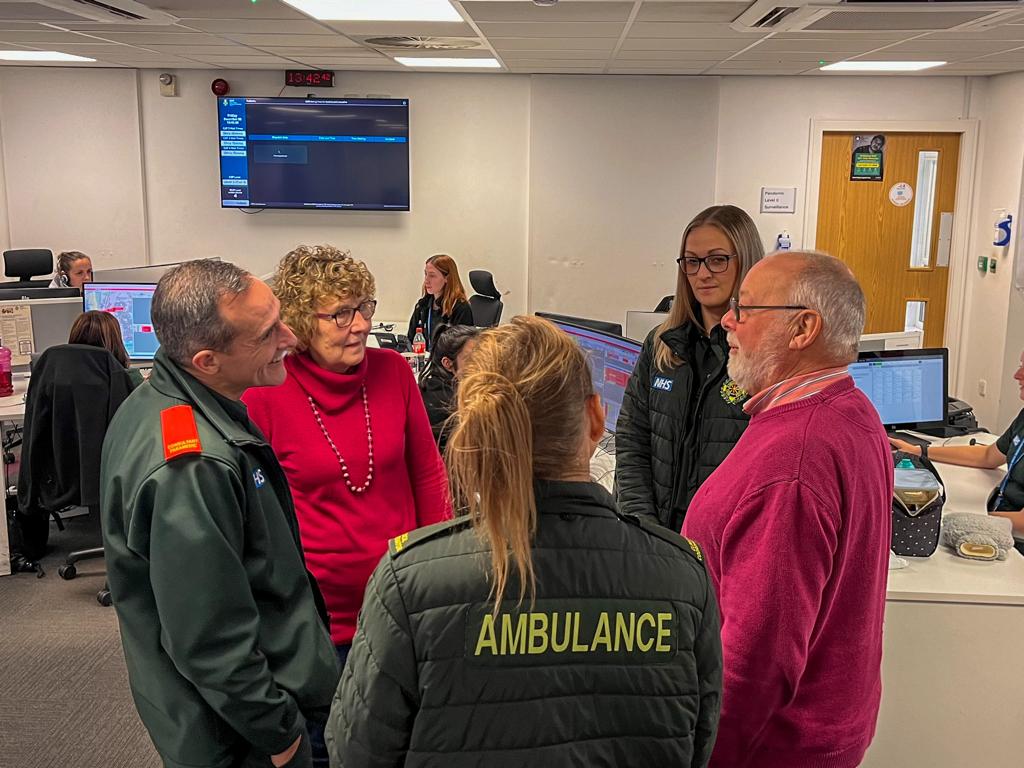
After feeling unwell throughout the day, Paul Hubberstey collapsed in his home in Preston during the afternoon on 14 September.
With his wife not due home until the evening, he was found by his son-in-law Toby, who immediately called 999, recognising symptoms of a possible stroke as Paul was slurring his words and suffering some facial and arm weakness.
Paramedic Rachel Barton and Emergency Medical Technician Collete Weepman were the ambulance crew members who arrived at his home.
They realised the time-critical nature of the incident, spending little time at the scene before taking him to Royal Preston Hospital, alerting them ahead of his arrival, which meant a specialist stroke nurse was waiting for them in A&E. Paul was then taken for a CT scan and further treatment within the recommended window.
He spent the next five days in hospital but is now at home, where he is receiving therapy and making good progress in his recovery.
Paul and his family were reunited with Rachel and Collette today at NWAS’ Lancashire headquarters near Preston. The meeting was arranged after Paul’s wife Joan wrote a thank you message to NWAS. Paul was also able to thank Ambulance Dispatcher Louise Woolcombe and Advanced Practitioner Diane Stott–Duggan at the event today, who were involved in supporting his care from the control room.

Gene Quinn, Head of Operations for Cumbria and Lancashire, said, “We’re delighted to welcome Paul and his family today. It’s lovely for the ambulance crew to meet him again in much more positive circumstances. We aren’t always able to find what happens to all the patients we take to the hospital, and it’s always good to hear when they do make a good recovery.
“It was a fantastic team effort by all the staff associated with the incident. Not just the ambulance crew who treated him at his house, but all those who worked behind the scenes: the call handler who took the initial 999 call, the dispatcher who fed the information to the crew, the clinical staff that assessed the call before the ambulance arrived, making sure Paul’s condition was given higher priority among other waiting patients and of course our fleet and logistics teams who are working around the clock to maintain our ambulances and response vehicles in a state of readiness.”
“We’ve since been told that Paul’s son-in-law, through his job, worked on the original public health campaign on strokes, highlighting the FAST test and the need for prompt treatment to prevent longer-term damage.
“It’s important to know the signs of a stroke and ring 999 immediately if you suspect somebody is suffering from one.”
Paul said, “I cannot thank everyone involved enough for their prompt diagnosis, treatment, excellent care and rapid access to A&E. Without this, the outcome would have been totally different. I am grateful to be able to do it in person.”
A survey for the NHS earlier this year found that 59% of adults in England were not aware that stroke is the fourth highest cause of death in the UK, and two-fifths (39%) of those surveyed did not recognise stroke as a medical emergency that requires urgent attention.
What is a stroke?
A stroke happens when the blood supply to part of the brain is cut off, killing brain cells. Damage to the brain can affect how the body works. It can also change how you think and feel. The effects of a stroke depend on where it takes place in the brain, and how big the damaged area is.
Stroke can be life-changing. It can happen to anyone of any age and affects everyone in different ways.
A stroke is a medical emergency. If you spot the signs of stroke, call 999.
The FAST test can help you recognise the most common signs.
- Facial weakness: Can the person smile? Has their mouth or eye drooped?
- Arm weakness: Can the person raise both arms?
- Slurred Speech: Can the person speak clearly and understand what you say?
- Time to call 999: if you see any of these signs.